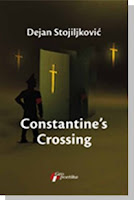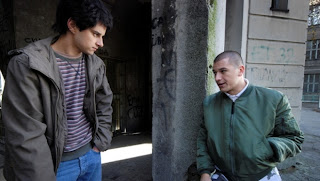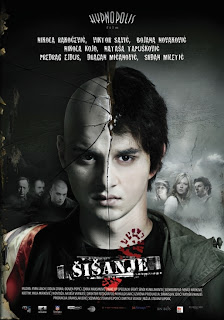Belgrade Publisher Promotes Serbian Literature Abroad
 Literature gets under the skin of a culture to reveal truths about people, their feelings and influences on their lives. Books can bypass spin to provide a vivid snapshot on a time, a culture or a community. For me, the thrill of discovering new literature is addictive. I make a point of reading books from countries that interest me or where I have a connection.
Literature gets under the skin of a culture to reveal truths about people, their feelings and influences on their lives. Books can bypass spin to provide a vivid snapshot on a time, a culture or a community. For me, the thrill of discovering new literature is addictive. I make a point of reading books from countries that interest me or where I have a connection.
A barrier can be locating English translations. The range is often limited to big name award winners and firmly established authors, with modern writers missing out on sharing their stories more widely.
I have read many fine books from Balkan authors, particularly from Serbia, a country that can only benefit from a deeper international understanding of its cultural touchstones. But while early 20th century writers such as Ivo Andrić, Danilo Kiš, Meša Selimović and Milorad Pavić have been translated into English, the range of writers from recent decades can be more difficult to get your hands on.
Šišanje / Skinning : A Serbian Film Worth Watching
 Skinning (Srb: Šišanje) tells of high-achieving Belgrade student Novica (Nikola Rakocević), and how he falls under the spell of far right extremism to set off an horrific chain of events. From Serbian director Stevan Filipović, this is a strong film that sticks with you long after the impact of the end credits and their victims roll call.
Skinning (Srb: Šišanje) tells of high-achieving Belgrade student Novica (Nikola Rakocević), and how he falls under the spell of far right extremism to set off an horrific chain of events. From Serbian director Stevan Filipović, this is a strong film that sticks with you long after the impact of the end credits and their victims roll call.
Šišanje / Skinning : Director Had ‘Moral Responsibility’ To Make Movie
 For his second outing as a director, Stevan Filipović has produced an astonishing film addressing Serbia’s issues of ultra-nationalism, alleged church corruption, and society’s lack of accountability – a state he claims he had ‘a moral responsibility to explore and explain‘.
For his second outing as a director, Stevan Filipović has produced an astonishing film addressing Serbia’s issues of ultra-nationalism, alleged church corruption, and society’s lack of accountability – a state he claims he had ‘a moral responsibility to explore and explain‘.
On release in Serbia, the public voted with their feet. In less than a month,Šišanje (English title:Skinning) attracted an audience of 44,000, making it one of the country’s most popular recent films.
Filipović says it is a film that would have been impossible to make even a decade ago, and unimaginable under the Milosovic regime. Even now, it has struck a raw nerve in Serbia where the crew received threats of violence from ultra nationalist groups, the premiere was heavily policed, and right-wingers called it criminal and anti-patriotic.
What cannot be faulted is that this provocative and uncompromising film has achieved something rare: it has held up a mirror and generated healthy and sometimes heated debate. After a private screening at the British Parliament, as part of Serbian Week in Great Britain and attended by the Serbian Ambassador, the film and its context again raised a spirited debate among the Serbian diaspora
Gypsy Boy by Mikey Walsh: A Book Review
 Recommending a favourite book does not always result in shared enjoyment. One man’s meat can be another man’s poison. Gypsy Boy by Mikey Walsh has not given me such concerns. Sharing such a great read has only received gratitude. I am not alone. The phenomenon has been fueled by word of mouth and celebrity endorsement via Twitter, helping Gypsy Boy scale the Sunday Times bestseller list.
Recommending a favourite book does not always result in shared enjoyment. One man’s meat can be another man’s poison. Gypsy Boy by Mikey Walsh has not given me such concerns. Sharing such a great read has only received gratitude. I am not alone. The phenomenon has been fueled by word of mouth and celebrity endorsement via Twitter, helping Gypsy Boy scale the Sunday Times bestseller list.
This biography of the early life of Romany Gypsy Mikey Walsh – not his real name – lifts the veil on a childhood growing up in a world often hidden in rumour and myth. The moving story unfolds as Mikey introduces a host of colourful characters and descriptions of daily ducking and diving on a Gypsy camp.

